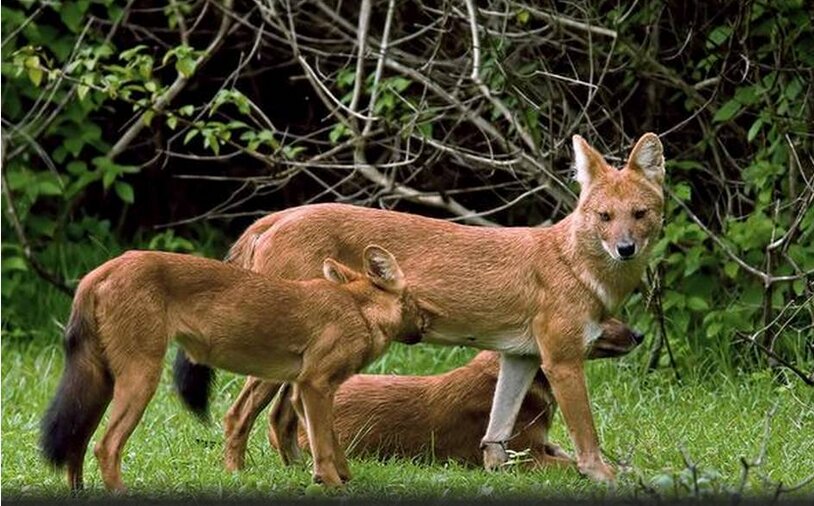Biodiversity & Environment
Dhole Conservation
- 05 Aug 2020
- 3 min read
Why in News
Karnataka, Maharashtra and Madhya Pradesh rank high in the conservation of the endangered Dhole in India, according to a new study.
- This study was conducted by scientists from the Wildlife Conservation Society-India, the University of Florida, the Wildlife Conservation Trust, and the National Centre for Biological Sciences.
Key Points
- In this study, the scientists explored the conservation tenets of retention, recovery and restoration of dholes in India.
- Karnataka, Maharashtra and Madhya Pradesh were found to be adequately equipped for consolidating forest habitats and recovering populations of Dhole by increasing prey density and reducing the pressure on forests.
- Arunachal Pradesh, Chhattisgarh, Odisha, Telangana and Goa are suggested to increase financial investments in the forest and wildlife sectors, and reduce the ease of granting forest clearances for infrastructure projects.
- Improving habitat conditions and prey densities in the Eastern Ghats of Andhra Pradesh, Telangana and Odisha would strengthen the link between dhole populations in the Western Ghats and central India.
Dhole
- About: Dhole (Cuon alpinus) is a wild carnivorous animal belonging to the canine family, found in Central, South, East Asia, and Southeast Asia.
- They are also known as Asian wild dogs.
- Ecological role: Dholes play an important role as apex predators in forest ecosystems.
- Conservation Status: It is under the International Union for Conservation of Nature’s ‘endangered’ category.
- The species is protected under Schedule 2 of the Wildlife Protection Act 1972 and under Appendix 2 of the Convention on International Trade in Endangered Species of Wild Fauna and Flora (CITES).
- In India, the first conservation breeding centre for dhole was built at the Indira Gandhi Zoological Park (IGZP) in 2014.
- Threats:
- Ongoing habitat loss: Due to deforestation and fragmentation of forest corridors.
- Depletion of prey base: Ungulates are main prey of dholes whose population is rapidly decreasing due to excessive hunting and habitat loss.
- Persecution due to livestock predation and disease transfer from domestic and feral dogs.






